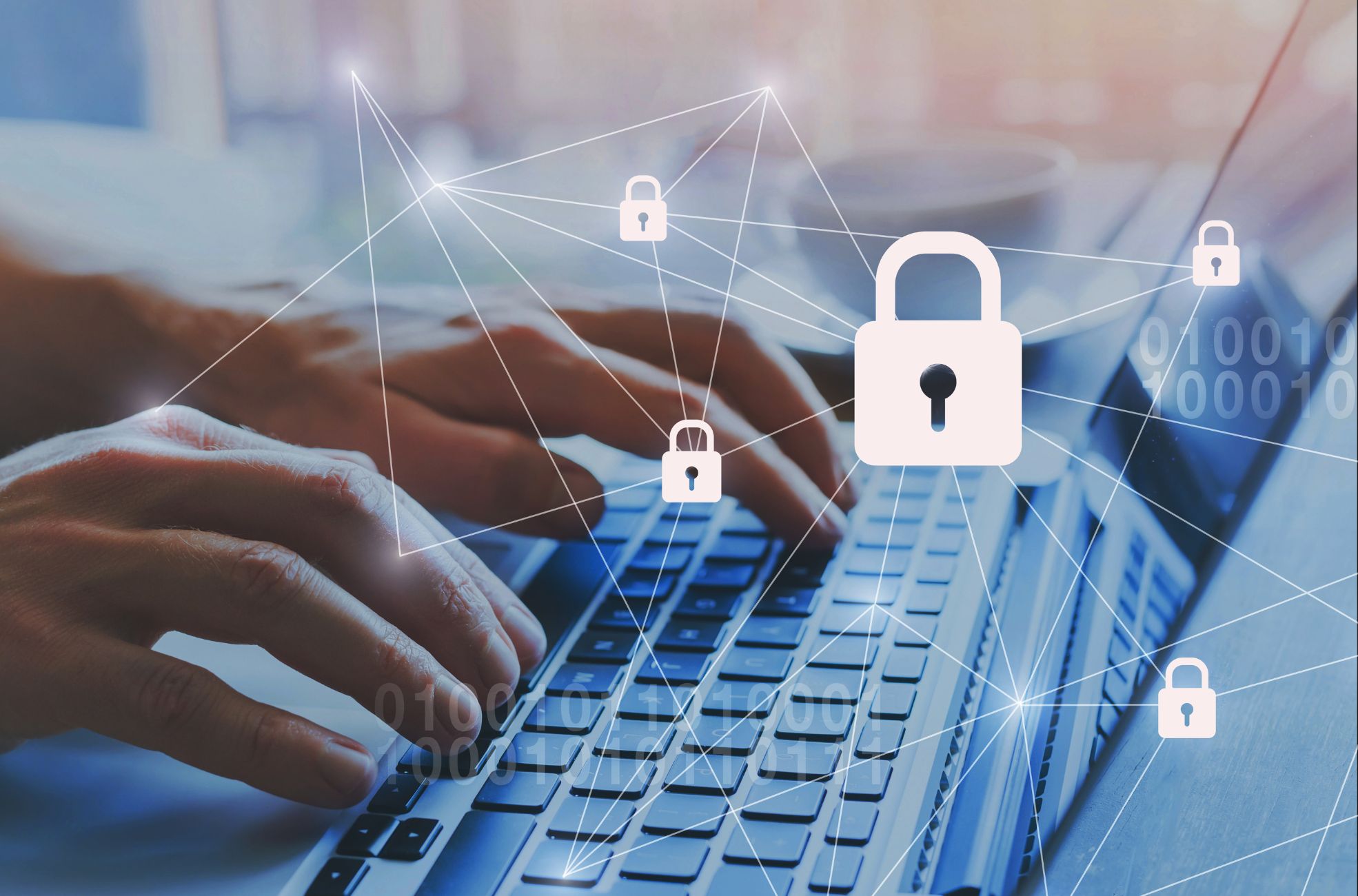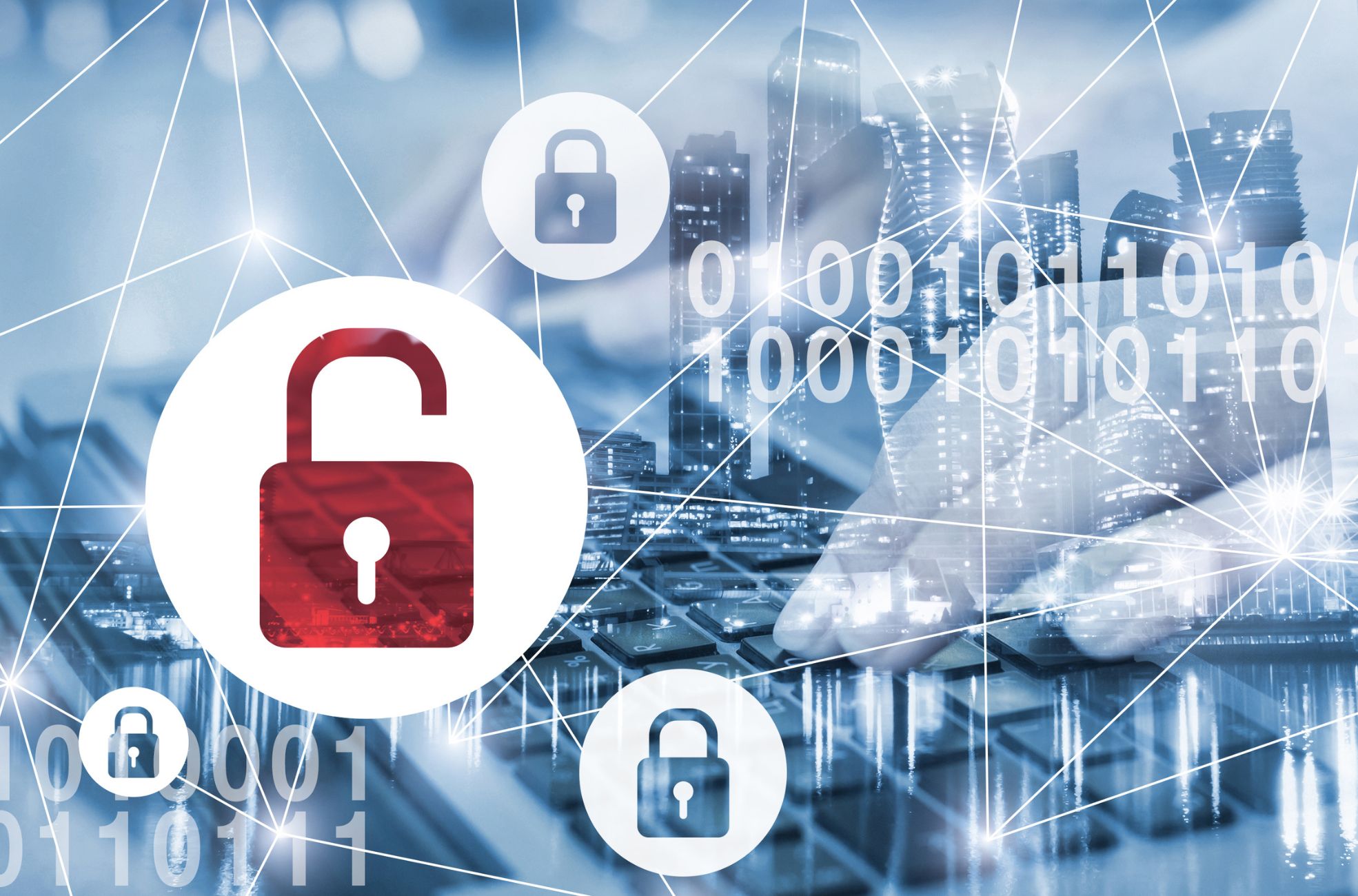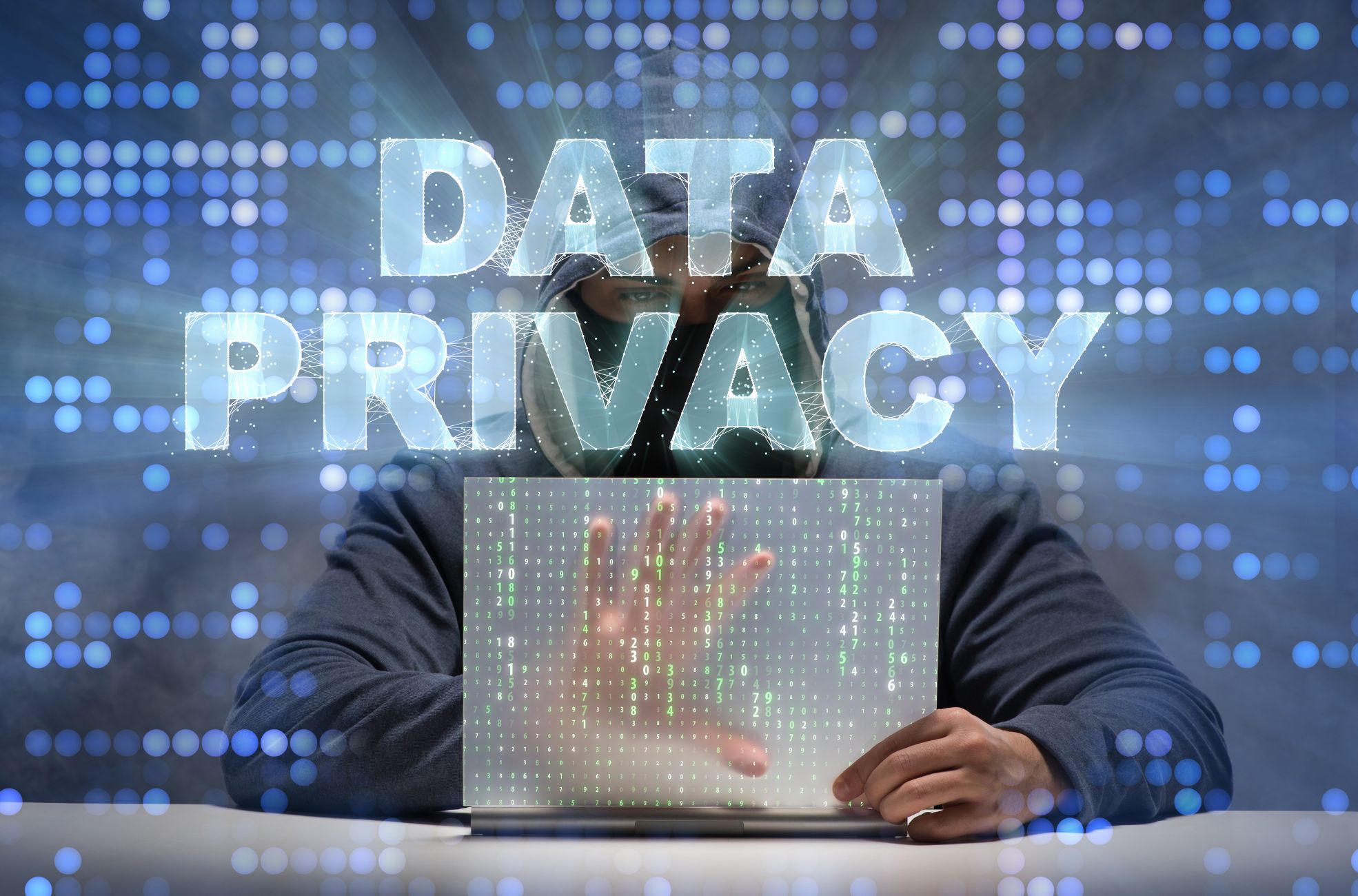Information privacy has become a cornerstone of personal and corporate security in our digital age. It’s the practice that ensures our personal data remains confidential and protected from unauthorised access and misuse. As we increasingly live our lives online, the importance of safeguarding sensitive information has never been more critical. From preventing identity theft to maintaining the integrity of business operations, the role of information privacy is far-reaching. Businesses and individuals alike must be vigilant, adopting robust security measures to counteract the growing threats to data privacy.
We look into the intricacies of information privacy, highlighting the importance of legal frameworks, and provide actionable advice on how to secure your data against ever-evolving cyber threats. Understanding and implementing effective data privacy focuses and strategies is essential to navigate the complexities of the digital world securely.
What Is Information Privacy
Information privacy, often intertwined with data privacy, is a critical aspect of information technology that properly handles sensitive data. This includes the processes involved in data storage and access control, retention, and protection, ensuring its immutability and security. At its core, information privacy is about protecting personal data or personally identifiable information (PII), which includes details like names, addresses, and financial information.
What is The Role of Information Privacy?
The role of information privacy is multifaceted. It acts as a shield to protect data from unauthorised access, theft, or loss. It’s crucial to maintain the confidentiality and security of data by implementing robust data governance practices. It prevents unauthorised access that could lead to data alteration, loss, or theft, revealing medical data. Information privacy ensures that your personal details aren’t misused or exposed without consent, protecting your financial and social integrity.
How Does Information Privacy Affect Business?
Information privacy has profound implications for businesses. A lapse in data privacy can lead to severe consequences, including regulatory penalties, lawsuits, and lasting damage to a company’s reputation and brand. When a business’s data integrity is compromised, it can’t trust its data for decision-making purposes.
Unauthorised access to sensitive business information can reveal intellectual property, trade secrets, and confidential communications. This could affect the outcome of data analytics and strategic decisions. Businesses must navigate a complex regulatory landscape, with data privacy laws and regulations varying across federal, state, and industry levels.
Complying with these regulations can bring significant benefits, such as reduced data storage costs, improved data utilisation, enhanced reputation, and adherence to legal requirements. However, achieving data privacy is more complicated, and many organisations struggle to meet the evolving requirements and counter threats.
Why Does Information Privacy Matter?
Information privacy matters because it directly impacts your trust and safety, as well as the operational integrity of businesses. Individuals affected by data breaches may face unauthorised financial transactions, compromised accounts, and other privacy violations. Meanwhile, companies must tackle the challenges of managing vast amounts of data, ensuring data security, and complying with complex regulations like the GDPR and HIPAA.
Data privacy can’t exist without data security, which involves protecting data from unauthorised access, loss, or corruption throughout its lifecycle. Maintaining data privacy includes treating it as an afterthought, poor data visibility, managing excessive amounts of data, and the complexity of regulations and devices.
To reinforce data and address privacy protection, you can take measures such as using strong passwords, enabling multi-factor authentication, and being cautious with the provision of PII. You should employ malware protection tools and only trust reputable apps and websites. Businesses should adhere to privacy principles by collecting minimal data, requiring strong authentication, and understanding data sources and storage locations. They should implement access logs, encrypt data, back up data regularly, ensure third-party storage providers meet privacy standards, and continuously educate employees on data privacy practices.

Legal Frameworks Governing Privacy
Overview of the General Data Protection Regulation (GDPR)
The GDPR extends its reach beyond the EU, affecting entities outside the region that process data pertaining to EU residents. It defines ‘personal data’ as any information that can identify an individual, either directly or indirectly.
Organisations are required to adhere to seven key principles under the GDPR, which dictate that personal data must be processed lawfully, fairly, and transparently. These principles include purpose limitation, the transfer of personal data, minimisation, accuracy, storage limitation, integrity and confidentiality, and accountability. Organisations may need to implement technical measures such as two-factor authentication and organisational measures like staff training and access controls to demonstrate compliance.
In the event of a data breach, the affected entities must notify the affected individuals within 72 hours, emphasising the importance of prompt action and transparency. The GDPR also advocates for ‘data protection by design and by default’, integrating the data protection rules into the development of business processes. It specifies conditions for lawful data processing, such as explicit, informed, and freely given consent.
Individuals have extensive rights under the GDPR, including the right to be informed, access, rectification, erasure, restriction of processing, data portability, and objection to processing, as well as data protection laws such as protections against automated decision-making and profiling. Non-compliance can result in substantial fines imposed by EU data protection authorities.
The California Consumer Privacy Act (CCPA) Explained
The CCPA empowers California residents to have greater control over their personal information held by businesses and introduces new privacy rights, such as the ability to inquire about using and sharing their personal information.
The CCPA allows consumers to instruct businesses not to sell or share their personal information and offers additional protections for minors under 17. For-profit entities in California that meet specific thresholds, such as having annual gross revenues exceeding $25 million or handling the personal information of numerous California residents, are subject to regulations related to the CCPA. It delineates what constitutes personal and sensitive personal information, including data that could be linked to an individual or household.
Businesses are required to provide a notice at the point of collection of medical records detailing the types of personal information they gather and the purposes for its use. They must also accommodate consumer requests to exercise their rights under the CCPA, including the right to opt out of the sale of their personal information. Businesses must provide at least two methods for submitting these requests and respond within 15 business days.
The CCPA mandates businesses conduct a data protection impact assessment for high-risk processing activities. A data breach is defined as an incident that results in unauthorised access or disclosure of personal data. The act also includes exceptions to the opt-out right. It specifies that service providers may reject a request to opt-out if they are not the business itself.
Other Significant Privacy Laws Worldwide
Numerous privacy laws exist globally, each with distinct provisions to protect personal information. These laws reflect the varying cultural attitudes towards privacy and the balance between individual rights and commercial interests.
Compliance Requirements for Businesses
Adhering to these privacy laws is essential for businesses to maintain consumer trust and safeguard their reputation. Compliance involves understanding the specific mandates of each applicable law, which may include conducting impact assessments, implementing robust security measures, and maintaining transparency in data processing.
Businesses must keep abreast of the changing privacy law landscape and be ready to modify their practices as needed. This necessitates ongoing employee education on regulatory compliance, revising privacy policies, and establishing clear protocols for handling data breaches and responding to consumer data inquiries. Non-compliance can lead to significant financial penalties and reputational harm, underscoring the need for comprehensive data protection strategies.

Threats to Information Privacy
Common Types of Data Breaches
The frequency of data breaches has escalated, with a significant rise in the number of incidents year over year. These events occur when unauthorised individuals gain access to confidential data, which can result in severe outcomes such as identity theft and financial loss.
Notable incidents have included the Equifax breach, which affected millions of sensitive information, and the Yahoo incident, which impacted a vast number of accounts. Retailers have also been targeted, and the personal details of millions of customers have been exposed in the Target breach.
Banks and insurance companies have not been spared, with JPMorgan Chase and Anthem suffering breaches that impacted their clientele. These examples underscore the susceptibility of personal and financial data and the broad ramifications for both individuals and enterprises.
Social Engineering and Privacy Intrusions
Cybercriminals continue to leverage social engineering to gain unauthorised access to data. The Gamaredon group, for instance, used spear-phishing campaigns to infiltrate Ukrainian entities.
In a notable case of CEO fraud, an executive was deceived into transferring funds due to a deep fake audio impersonation. The FACC incident involved scammers impersonating executives to divert $60 million. Phishing has also targeted banking customers, leading to substantial financial losses for those affected.
Government employees have not been immune to these tactics, with phishing attempts leading to the disclosure of sensitive personal health information and personal identification information.
The Role of Malware and Spyware
Malware and spyware continue to threaten information privacy. These malicious programs, including viruses, ransomware, and spyware, can covertly install themselves on devices, leading to dire consequences.
Infections often occur when users download attachments or files from untrustworthy sources or visit compromised websites. To counter these threats, it is essential to use security software, maintain a firewall, and adhere to secure browser settings. If you find that your devices are still under threat, it is advisable to contact a virus removal specialist.
Caution is advised when installing new applications and when interacting with email links, pop-ups, and advertisements that may serve as vectors for malware.
It is also prudent to scan external devices, such as USB drives, before use to prevent the introduction of malware.
Impact of Data Leaks on Individuals and Organisations
Data leaks can have profound effects on both individuals and organisations. The personal impact can include identity theft and its associated financial and emotional burdens. The repercussions are significant for organisations, with industries such as manufacturing & utilities, healthcare, and financial services being particularly susceptible to data compromises.
The healthcare sector has faced increased risk, with the pandemic intensifying the potential for breaches due to the transition to remote work. The lack of transparency in breach reporting exacerbates the problem.
These vulnerabilities leave both individuals and organisations at risk of exploitation. The aftermath of data leaks can be enduring, affecting countless individuals and eroding confidence in entities responsible for protecting sensitive information.

Protecting Your Information Online
In an era where personal information is as valuable as currency, safeguarding your digital footprint is not only prudent but essential. Companies, governments, and malicious entities are eager to track your online behaviour for various purposes, from targeted advertising and data collection to surveillance and financial theft, making privacy settings more important than ever.
Essential Privacy Settings to Adjust
Exploring the privacy settings of the services and devices you use is crucial to fend off unwarranted tracking and data collection. Tech giants like Google and Apple offer options to stop tracking your web searches, app activity, and even location history. Google Activity Controls and the Google Data & Privacy Centre are key to managing these settings.
Similarly, Apple devices allow you to disable ad tracking and analytics sharing. This ensures that your contact details, payment information, and social media interactions stay private. Microsoft users should consider disabling settings that allow apps to use advertising IDs, access to cameras and microphones, and voice activation that listens for specific keywords. Making these adjustments is a foundational step in taking control of your personal data.
Secure Passwords and Authentication Methods
Creating strong passwords is a cornerstone of online security. A robust password mixes upper- and lowercase letters, numbers, and special characters steering clear of predictable elements like birthdates and pet names. Password managers can help you keep a secure and organised collection of passwords.
Beyond passwords, two-factor authentication (2FA) significantly boosts your security. It requires a second form of verification, such as a mobile device or biometric factor, making unauthorised access much harder. Despite its effectiveness, the security of 2FA depends on the integrity of its components, with push notifications being a more secure option than methods like SMS.
Best Practices in Social Media Privacy
Social media platforms are a hotbed for privacy breaches. It’s smart to regularly review and tweak your privacy settings on these platforms to control who can see your personal information and posts. You should also be mindful of how much personal information you’re sharing online and the potential for your data to be tracked and saved by the platforms themselves.
Utilising Encryption for Data Security
Encryption is a powerful tool for protecting your data from unauthorised access and cyber threats. It works by turning sensitive information into a coded format that can only be read with a unique key. Whether your data is at rest, in transit, or being processed, encryption ensures its confidentiality and integrity.
Encryption is a critical component in meeting data privacy and security regulations, and it becomes increasingly important as more data is stored in the cloud. However, the security of encryption hinges on the safekeeping of cryptographic keys, and emerging technologies like quantum computing pose new challenges to its effectiveness.
The Future of Information Privacy
Emerging Technologies and Privacy Concerns
As technology evolves, the challenge of using data subjects to safeguard information privacy intensifies. The development of the metaverse and the growing influence of Big Tech companies have led to an accumulation of data that can influence economic and societal dynamics. The metaverse is expected to generate a substantial volume of data, increasing the potential for these companies to expand their influence.
The privacy paradox is a scenario where individuals may consent to data usage in unavoidable situations, which can undermine the principle of informed consent. The workings of AI systems can be opaque, making it difficult to understand how data is being used.
The Role of Artificial Intelligence in Privacy
AI is a prominent technology that presents both risks and opportunities for privacy. The data-intensive nature of AI systems can pose risks if used sparingly. Biases in AI algorithms can result in unfair outcomes, and the technology’s ability to create synthetic media and sophisticated phishing attacks poses additional privacy challenges.
AI’s capacity for surveillance, especially when used by law enforcement, can lead to power imbalances and risks to personal information. Conversely, AI has the potential to enhance privacy by enabling more precise personal information usage preferences and improving transparency in decision-making processes.
AI challenges traditional privacy principles by deriving insights from data beyond its original purpose, which complicates the application of the purpose specification principle. However, AI could also enable more nuanced consent mechanisms and explanations of data processing.
The governance of AI technologies requires frameworks that ensure responsible design and oversight. Privacy should be integral to the ethical framework guiding AI development. Organisations and governments must ensure that AI systems incorporate privacy protections.
As individuals, we have a role in protecting our information by staying informed and using privacy tools. Decentralised AI technologies could provide secure and transparent AI services, offering a potential solution for balancing innovation with privacy.
Guarding Your Digital Domain
In the ever-shifting landscape of the digital realm, your vigilance is the sentinel against threats to your privacy. Information privacy is not simply a luxury but a foundation upon which the sanctity of our personal and professional lives is built. By embracing robust privacy practices, we secure the fortresses of our data and reinforce the trust paramount to digital interactions. Let us carry this shield of vigilance forward—updating our knowledge, refining our defences, and preparing for future advancements. Your data reflects you; protect it with the same enthusiasm you would your home, your family, and your freedom.









